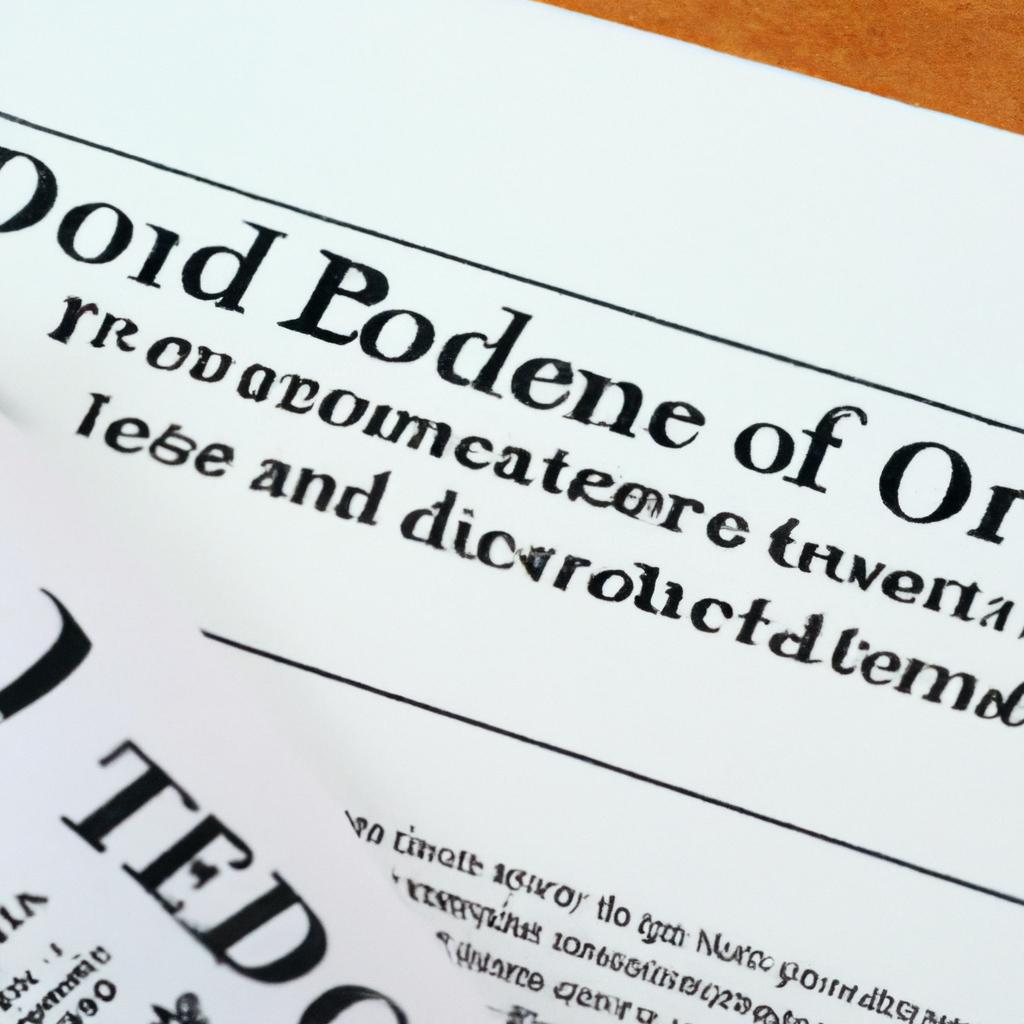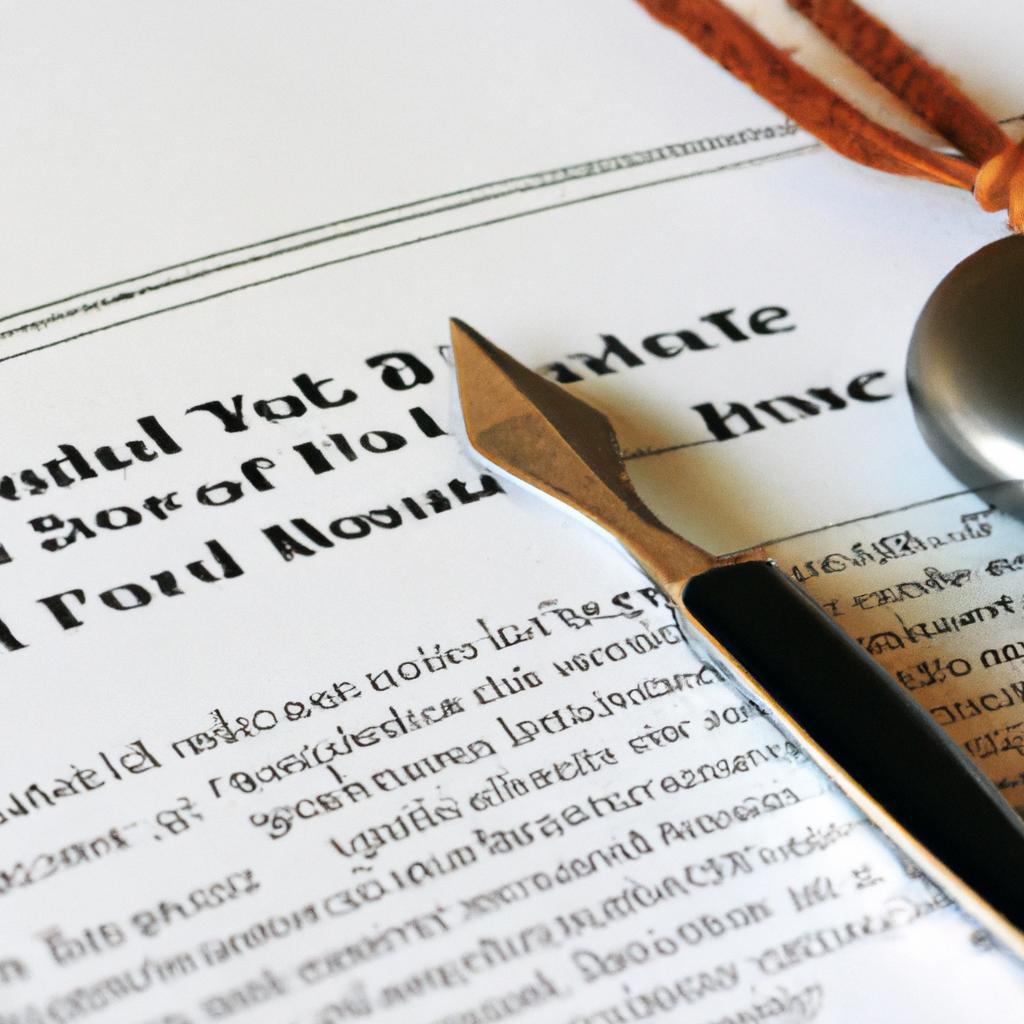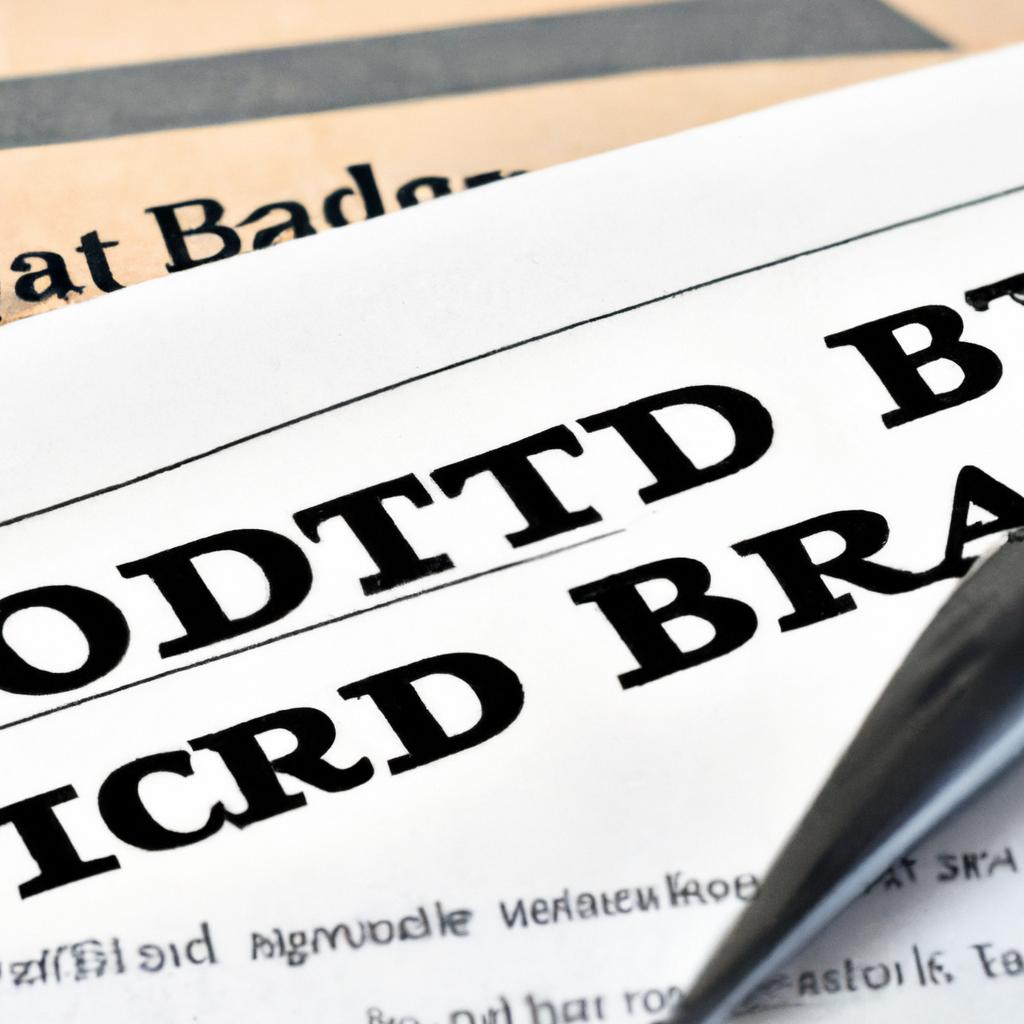Navigating the intricate realm of probate can be a daunting task. As experienced attorneys at Morgan Legal Group in New York City, we understand the importance of securing a probate bond in order to effectively administer an estate. In this article, we will provide a comprehensive guide on how to obtain a probate bond, ensuring that you are well-equipped to carry out your fiduciary duties with confidence and ease.
Understanding the Purpose of a Probate Bond
Probate bonds, also known as fiduciary bonds, are required by the court to ensure that the executor or administrator of an estate fulfills their duties properly. These bonds protect the beneficiaries and creditors of the estate from any potential misconduct or negligence on the part of the fiduciary. is crucial for anyone involved in the probate process.
When obtaining a probate bond, it is important to follow these steps:
- Evaluate the Requirements: Determine the amount and type of bond required by the court.
- Select a Surety Company: Choose a reputable surety company that specializes in probate bonds.
- Apply for the Bond: Provide the necessary information and undergo a credit check to secure the bond.
- Purchase the Bond: Pay the premium to the surety company to obtain the bond.

Navigating the Requirements for Obtaining a Probate Bond
When it comes to , there are a few key factors to consider. First and foremost, it is essential to understand the purpose of a probate bond and why it may be required in certain situations. A probate bond, also known as a fiduciary bond, is a type of insurance that protects the beneficiaries of an estate in the event that the executor or administrator of the estate fails to fulfill their duties.
One of the main requirements for obtaining a probate bond is having a good credit history. Insurance companies that issue probate bonds will typically conduct a credit check to assess the financial stability of the executor or administrator. Additionally, the court may require the executor or administrator to provide proof of assets to ensure that they have the means to cover any potential losses. It is also important to keep in mind that the requirements for obtaining a probate bond can vary depending on the size of the estate and the specific laws of the jurisdiction in which the estate is being probated.

Choosing the Right Provider for Your Probate Bond
When it comes to , there are a few key factors to consider. First and foremost, you’ll want to work with a provider that has a strong reputation in the industry. Look for a company with years of experience and a track record of success in helping clients secure probate bonds.
Additionally, make sure to choose a provider that offers competitive rates and flexible terms. You’ll want to find a company that can tailor a probate bond to meet your specific needs and budget. Finally, consider the level of customer service offered by the provider. You’ll want to work with a company that is responsive, reliable, and committed to helping you navigate the probate bond process smoothly and efficiently.

Benefits of Working with an Experienced Estate Planning Firm
One advantage of working with an experienced estate planning firm like Morgan Legal Group is the peace of mind that comes from knowing your assets and loved ones are protected. Our team of knowledgeable attorneys has years of experience navigating the complexities of probate and estate planning, ensuring that your wishes are carried out effectively and efficiently. With our expertise, you can rest assured that your estate will be in good hands.
Another benefit of partnering with a reputable estate planning firm is access to valuable resources and connections in the legal community. At Morgan Legal Group, we have established relationships with financial institutions, insurance companies, and other professionals that can help streamline the probate process and ensure a smooth transition of your assets. By working with us, you can leverage our network of experts to simplify the probate bond application process and avoid unnecessary delays or complications. With our support, you can navigate the probate process with confidence and peace of mind.
| Benefits | Details |
|---|---|
| Peace of Mind | Knowing your assets and loved ones are protected. |
| Access to Resources | Connections in the legal community to streamline the probate process. |
Q&A
Q: What is a probate bond?
A: A probate bond, also known as a fiduciary bond, is a type of insurance that is required by the court to protect the assets of an estate during the probate process.
Q: Why are probate bonds necessary?
A: Probate bonds are necessary to ensure that the executor or administrator of an estate carries out their duties honestly and faithfully. They provide financial protection for beneficiaries and creditors in case the executor fails to fulfill their obligations.
Q: How can I get a probate bond?
A: To get a probate bond, you will need to apply through a surety company or an insurance provider that specializes in bonding services. You will need to fill out an application, provide information about the estate, and undergo a credit check.
Q: What factors determine the cost of a probate bond?
A: The cost of a probate bond is based on a variety of factors, including the value of the estate, the creditworthiness of the applicant, and the level of risk involved. Generally, the premium is a small percentage of the total bond amount.
Q: Are there alternatives to obtaining a probate bond?
A: In some cases, the court may waive the requirement for a probate bond if all beneficiaries agree to do so. However, this is not common and can be risky for the estate.
Q: What happens if the executor fails to obtain a probate bond?
A: If the executor fails to obtain a probate bond when one is required, they may be removed from their position or face legal consequences. Additionally, the beneficiaries and creditors of the estate may not receive the protection they are entitled to.
In Conclusion
In conclusion, obtaining a probate bond may seem like a daunting task, but with the right guidance and resources, it can be a relatively straightforward process. By understanding the requirements and steps involved, you can effectively navigate the probate bond application process and ensure that your loved one’s estate is protected. Remember to consult with a trusted bonding company or legal professional to assist you in securing the appropriate bond for your specific situation. With patience and diligence, you can successfully acquire a probate bond and fulfill your obligations as an executor or administrator. Good luck on your probate bond journey!
 Title: How to Get a Probate Bond: A Comprehensive Guide for Executors
Title: How to Get a Probate Bond: A Comprehensive Guide for Executors
Keywords: probate bond, executor, estate, court, surety bond, fiduciary, assets, inheritance, bond amount
As an executor, you may be required to obtain a probate bond in order to fulfill your duties as the administrator of a deceased person’s estate. This is a common requirement in many states, and it serves as a form of protection for the beneficiaries and creditors of the estate. In this guide, we will discuss what probate bonds are, why you may need one, and how to obtain one.
What is a Probate Bond?
A probate bond, also known as a fiduciary bond or executor bond, is a type of surety bond that guarantees the faithful and honest performance of an executor’s duties. It acts as a form of insurance for the beneficiaries and creditors of the estate, ensuring that they will be compensated if the executor mismanages or misappropriates the assets of the estate.
Why Do I Need a Probate Bond?
If you have been named as an executor, you are essentially in charge of managing and distributing the assets of the deceased person’s estate to the rightful beneficiaries. This is a significant responsibility, as you are legally obligated to act in the best interests of all parties involved, including the estate’s heirs, creditors, and taxing authorities.
The probate bond is required by the court to protect the beneficiaries and creditors from any potential mishandling of the estate’s assets by the executor. It also ensures that the executor will pay any taxes and debts owed by the estate. In short, a probate bond is a safeguard for all parties involved in the probate process.
How Do I Obtain a Probate Bond?
The process of obtaining a probate bond may vary slightly depending on the specific requirements of your state and the size of the estate. Here is a step-by-step guide to help you navigate this process smoothly:
1. Determine the Bond Amount
The first step in obtaining a probate bond is to determine the bond amount required by the court. This amount is typically based on the total value of the assets of the estate. In most cases, the bond amount will range from 1% to 5% of the estate’s total value.
2. Find a Reputable Surety Bond Company
Once you know the bond amount, you can begin shopping for a surety bond company. It is crucial to choose a reputable and experienced company that specializes in probate bonds. You can ask for recommendations from your attorney or research online for reliable companies.
3. Prepare the Necessary Documents
The surety bond company will require you to provide certain documents to process your bond application. These documents may include a copy of the will, death certificate, list of assets, and any court orders related to the estate.
4. Complete the Bond Application
Once you have gathered all the necessary documents, you can complete the bond application with the help of the surety bond company. The application will require personal and financial information from you, as well as information about the estate and the deceased person.
5. Pay the Premium
The premium is the cost of obtaining the bond and is usually a percentage of the bond amount. The premium may vary depending on your credit score and the complexity of the estate. Once you have paid the premium, the surety bond company will issue the bond, and you will be ready to file it with the court.
6. File the Bond with the Court
Once you have received the probate bond, you must file it with the court and obtain a proof of filing. The probate process cannot proceed until the bond has been filed and approved by the court.
Benefits of Obtaining a Probate Bond
While obtaining a probate bond may seem like a daunting task, it serves many benefits to all parties involved.
1. Protection for the Estate’s Beneficiaries and Creditors
As mentioned earlier, the bond acts as a form of insurance for the beneficiaries and creditors of the estate. It guarantees that they will be protected from any mismanagement or fraudulent activities by the executor.
2. Assures the Executor’s Legal Obligations
By obtaining a probate bond, the executor is assuring the court that they understand their legal obligations and will act in the best interests of all parties involved.
3. Enables the Probate Process to Move Forward
Without the probate bond, the court may not appoint an executor, which would delay the probate process significantly.
Practical Tips for Executors
Here are some practical tips to help you navigate the probate bond process smoothly:
– Start the process early: It is best to start the process of obtaining a probate bond as soon as possible to avoid any delays in the probate process.
– Choose the right surety bond company: Do your research and choose a reputable and experienced surety bond company that specializes in probate bonds.
– Have all the necessary documents ready: Having all the necessary documents ready will help expedite the bond application process.
– Pay attention to deadlines: Make sure to file the bond with the court before the deadline given by the court.
– Keep accurate records: As an executor, it is crucial to keep detailed records of all the estate’s assets and transactions to avoid any potential issues.
In conclusion, obtaining a probate bond is an essential step in the probate process and serves as a form of protection for all parties involved. By following the steps outlined in this guide and keeping these practical tips in mind, you can ensure a smooth probate process and fulfill your duties as an executor with integrity and confidence.

